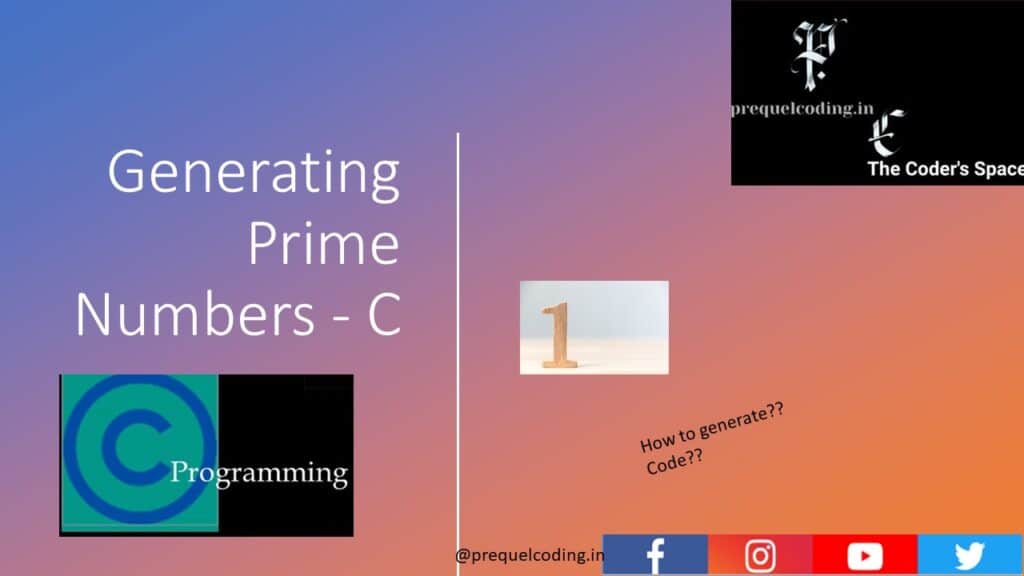This blog we are going to see how do we generate prime numbers in C programming.
Let us looks at the parameters first and then go ahead with the coding part:
- Variables
- Inner and outer looping: for looping..
- Header files library: some include #stdio.h, #stdlib.h, #stdbool.h
- Prime Index: skips the even numbers.

Coding part:
/* basic skeleton of the code */
#include<stdio.h>
#include<stdlib.h>
#include<stdbool.h>
int main(){
/* variable initialization */
int p;
int i;
int prime[50] = {0};
int primeIndex = 2; //skips the even numbers
bool isPrime;
//hardcode
prime[0]= 1;
prime[1] = 3;
for(p=5;p<=100;p=p+2){ /*outer looping*/
isPrime = true;
for(i=1;i = p && i/prime[i]>=prime[i]; ++i) /* inner looping */
if(p % prime[i] == 0) /* % used here because after the division of the i by primes what ever remainder we get is going to be zero..
isPrime= false;
/*executing the true condition */
if(prime[i] == true){
prime[primeIndex] = p;
++primeIndex;
}
}
/*output coding */
for(i=0;i<prime[i];++i)
printf("%i ",prime[i]);
printf("\n");
return 0;
}
Full Code:
#include<stdio.h>
#include<stdlib.h>
#include<stdbool.h>
int main(){
int p;
int i;
int prime[50] = {0};
int primeIndex = 2; //skips the even numbers
bool isPrime;
//harcode
prime[0]= 1;
prime[1] = 3;
for(p=5;p<=100;p=p+2){
isPrime = true;
for(i=1;i = p && i/prime[i]>=prime[i]; ++i)
if(p % prime[i] == 0)
isPrime= false;
if(prime[i] == true){
prime[primeIndex] = p;
++primeIndex;
}
}
for(i=0;i<prime[i];++i)
printf("%i ",prime[i]);
printf("\n");
return 0;
}